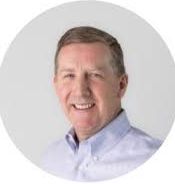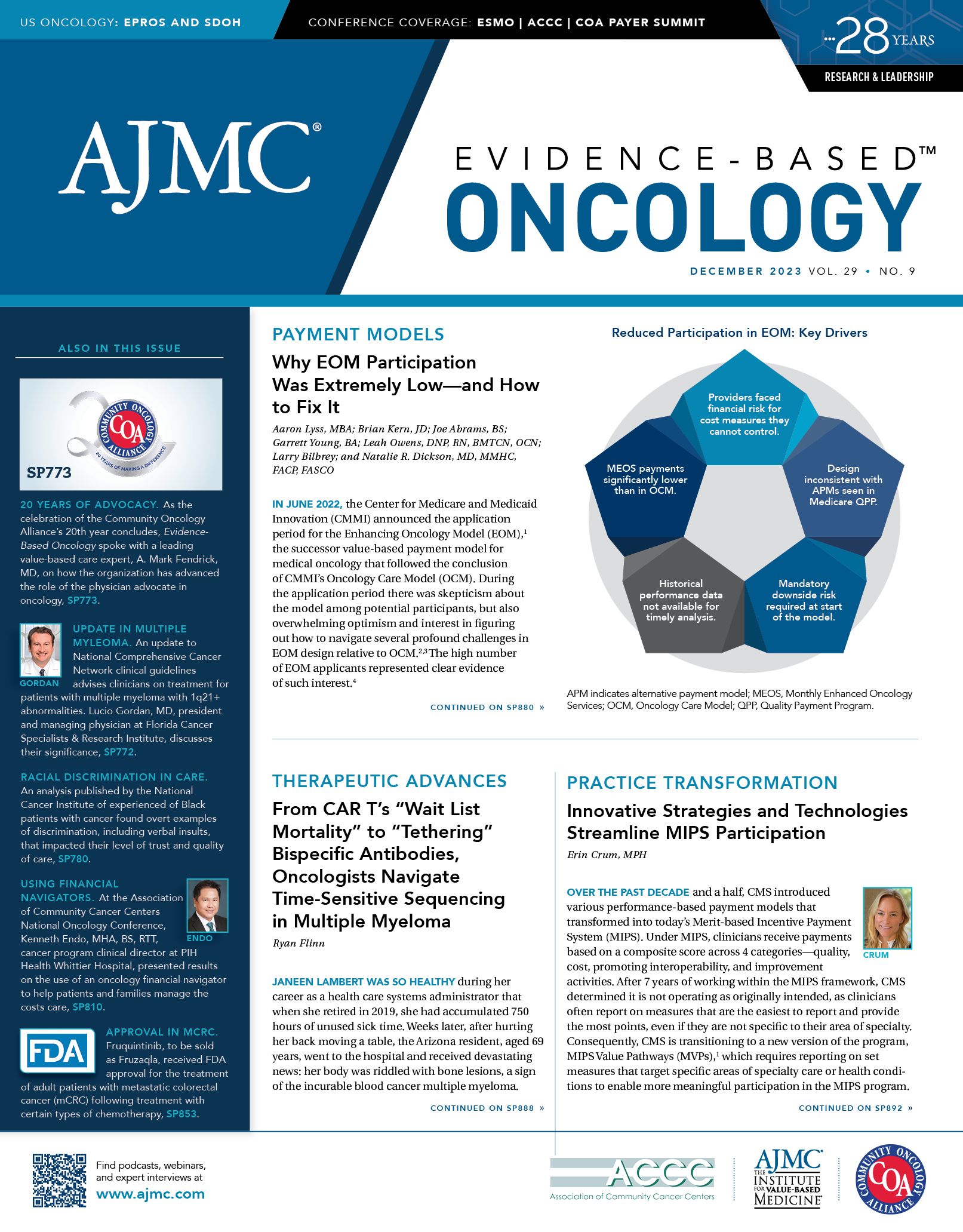- Center on Health Equity & Access
- Clinical
- Health Care Cost
- Health Care Delivery
- Insurance
- Policy
- Technology
- Value-Based Care
Creating Incentives for Smarter Choices in Cancer Care
Coverage from The US Oncology Network Payer Transformation Summit, held September 27-29, 2023, in Atlanta, Georgia.
Over the past 18 months, Pete Scruggs, founder and CEO of benefitSMART Cancer Solutions, has been frequently seen at meetings with community oncology providers, spreading a message that he says is being well-received by employers: the era of accepting advice from
Scruggs

consultants without asking questions is over. Yes, cancer care is expensive, but that doesn’t employers can’t shop for greater value. His company, which started in the Pacific Northwest, is working to bring direct contracting solutions nationwide. Scruggs says in some cases, treatment costs can be reduced up to 50%. At The US Oncology Network Payer Transformation Summit, Scruggs joined a discussion about bringing the employers’ voice to the table. Afterward, he shared some key points with Evidence-Based Oncology (EBO).
This interview has been condensed and edited for clarity.
EBO: What was your key message to employers in controlling costs in cancer care?
Scruggs: Our contention is that there’s a crazy need in this country for a connection between quality and cost. So much of the care in our country is quality with high cost, and various studies show that close to 60% of this care is landing in high-cost settings, even though clinically, that’s not necessary. [When I speak to doctors] I’ve asked for a show of hands of how many people they turn away as patients because they can’t clinically manage the care. And I don’t think there were ever more than 1 or 2 hands that went up. So, from a business standpoint, if you’re a self-funded employer, that’s a problem if 60% of the care is going to high-cost sites of care, when from a clinical standpoint, maybe only 5% of this is mandated. You really have an education and a coordination problem for employers, and the tragic downside of that is that patients bear the cost of that.
Most commercial plans do not incentivize participants for smart choices. That’s why we call our program benefitSMART; we’d like to believe that patients can be trained to become good consumers, because most of us aren’t. … It’s just it’s kind of classic with patients, they would be open to making choices that are good quality at a good cost, but they don’t know how. And so, for us, the community oncology setting is really a very appropriate site of care for the majority of patients. We’ve built systems to make it easy for the patient to come to them—we’re not the Expedia of cancer; we’re not waiting for patients to come to us. We’ve built processes to get in front of the cancer treatment at the patient level. And that’s really been the key.
EBO: Since you appeared at the Community Oncology Alliance Payer Exchange Summit a year ago, what have been some developments that have been consequential for your concept and for direct contracting generally?
Scruggs: There’s a growing awareness that [direct contracting] is becoming something that employers can solve for the cost of cancer treatment. I think historically, they’ve kind of held their consultants harmless of solving for costs; you tend to have consultants show up with analytics spreadsheets that explain how expensive cancer care is, and they’d bemoan the fact that it went to the high cost of care, and then everybody changes the topic. And what we found in the last year is that employers are becoming more aware that know this can be solved with proactive means, and with partnerships with these community oncology centers. Employers are starting to expect more. That’s No. 1.
No. 2 is that there is a growing movement to be proactive. At many sources, we’ve become a de facto partner for a lot of ecosystem partners; we’re under the hood with medical management company stop-loss carriers, with third party administrators. And that has really changed in the last year, we used to be primarily consultant-centric, and we still do a lot of that work. But many of the other ecosystem partners that they’re already doing work with have now built us into their ecosystem. When they’re showing you their oncology solution that’s actually us. And that’s become, I think, a very crucial part—because the key thing in cancer getting value is you’ve got to have a way of getting to the patient. If you’re waiting for the patient to come find you, it’s going to be very low uptake. For patients, they’re in the fight of their life.
One of the things that’s really become much clearer in the past year is that the person who needs to be heard during this journey is the patient’s caregiver. Often, they don’t have a voice because they’re so worried about the clinical outcome—indeed, the survivability of their loved one. They don’t complain about the finances. But when we talk to patients, we make sure that caregivers are with them, and we slow down enough to say, “Let’s just stop for a second and say, if you could get great quality care, and it cost nothing, what would that mean to your family?” And it’s usually tears, because there are rent payments or mortgages that aren’t being paid. Or, we’ve had situations with a high school child that wants to do their senior year travel volleyball, and now they can’t do it, because not only is Mom sick, but they don’t have any spirit and all the money is going to fund the treatments. So, it’s been important to be able to have those interactions with the loved ones and help them understand that if they’re thoughtful about where they seek care, that their finances don’t have to be impacted by their treatment.

Oncology Onward: A Conversation With Dr Debra Patt of Texas Oncology
August 1st 2023Debra Patt, MD, PhD, MBA, joins hosts Emeline Aviki, MD, MBA, and Stephen Schleicher, MD, MBA, for episode 2 of our newest podcast, "Oncology Onward: Conversations With Innovators and Changemakers in Cancer Care."
Listen
